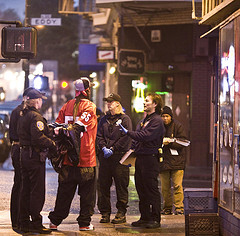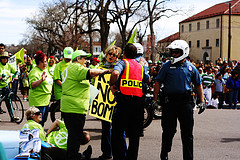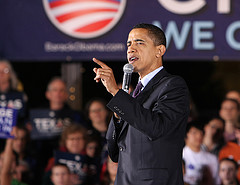Check out this fascinating blog post from Jeff Weintraub about MSNBC commentator Chris Matthews’ comments about contrasting sociologists with Americans.
Weintraub writes,
“Tonight, Matthews suddenly decided that even mentioning class and race in connection with elections is for ‘sociologists,’ not ‘Americans.’ Using phrases like ‘blue-collar’ is ‘elitist talk.’ And simply by talking about ‘white working-class voters,’ Hillary Clinton is almost ‘like the Al Sharpton of white people.'”
Check out the full story with video link.

 The New York Sun
The New York Sun CBS news
CBS news Follow
Follow  A recent
A recent 

